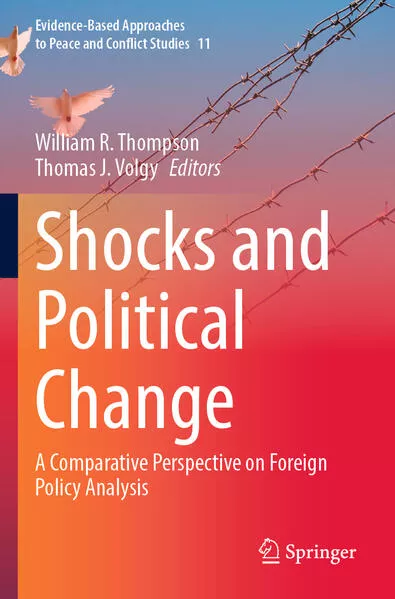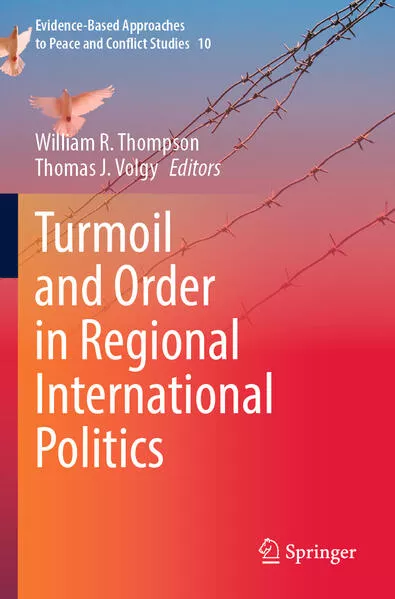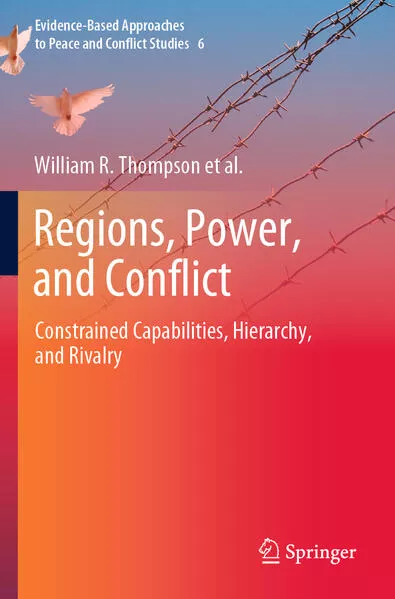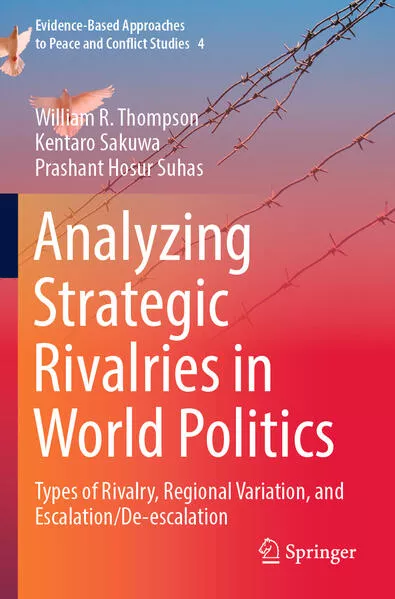
- Publikationen ca: 10
- Fragen & Antworten
William R. Thompson
William R. Thompson is Distinguished Professor and Rogers Chair of Political Science Emeritus at Indiana University and Editor-in-chief of the Oxford Research Encyclopedia of Politics. He is a former President of the International Studies Association and twice Editor-in-Chief of International Studies Quarterly. Recent books include The Oxford Encyclopedia of Empirical International Relations Theory (editor, 2018); Racing to the Top: How Energy Fuels Systemic Leadership in World Politics (co-author, 2019), Shocks and Rivalries in the Middle East and North Africa (co-editor, 2020); Power Concentration in World Politics: The Political Economy of Systemic Leadership, Growth and Conflict (2020); American Global Pre-eminence: The Development and Erosion of Systemic Leadership (2021), and Climate Change in the Middle East & North Africa From Pre-History to the Present: 15,000 Years of Crises, Setbacks, and Adaptation (co-author, 2021).
Kentaro Sakuwa is an associate professor of international politics at the School of International Politics, Economics, and Communication (SIPEC), Aoyama Gakuin University in Tokyo, Japan. He received a Ph.D. in political science from Indiana University, Bloomington in 2015. Prior to joining SIPEC as an assistant professor in April 2017, he was a visiting assistant professor at Valparaiso University in Indiana, USA.
His research focuses on the causes of conflict and peace, especially from the regional, spatial, and network perspectives. Key research questions include why some regions are more peaceful than others, how regime type and international peace coevolve, and how rivalries transform into peaceful relationships.
Shocks and Political Change
Political shocks have come to be considered highly salient for explaining major changes to international politics and to the foreign policies of states. Such shocks can occur at all levels of analysis: domestically, dyadically, regionally, or globally.
Turmoil and Order in Regional International Politics
This edited book complements and follows up on the book, Thompson and Volgy et al, Regions, Power and Conflict: Constrained Capabilities, Hierarchy, and Rivalry. It is predicated in part on the paucity of published material available on comparing regional international politics.
Regions, Power, and Conflict
The three main levels of analysis in international relations have been the systemic, the national, and the individual. A fourth level that falls between the systemic and the national is the region. It is woefully underdeveloped in comparison to the attention afforded the other three.
Shocks and Political Change
Political shocks have come to be considered highly salient for explaining major changes to international politics and to the foreign policies of states. Such shocks can occur at all levels of analysis: domestically, dyadically, regionally, or globally.
Shocks and Political Change
Political shocks have come to be considered highly salient for explaining major changes to international politics and to the foreign policies of states. Such shocks can occur at all levels of analysis: domestically, dyadically, regionally, or globally.
Turmoil and Order in Regional International Politics
This edited book complements and follows up on the book, Thompson and Volgy et al, Regions, Power and Conflict: Constrained Capabilities, Hierarchy, and Rivalry. It is predicated in part on the paucity of published material available on comparing regional international politics.
Turmoil and Order in Regional International Politics
This edited book complements and follows up on the book, Thompson and Volgy et al, Regions, Power and Conflict: Constrained Capabilities, Hierarchy, and Rivalry. It is predicated in part on the paucity of published material available on comparing regional international politics.
Analyzing Strategic Rivalries in World Politics
Strategic rivalries are contests between states that view one another as threatening competitors and treat each other as enemies. A disproportionate amount of interstate conflict is generated by a relatively small number of these pairs of states engaged in rivalries that can persist for years.
Regions, Power, and Conflict
The three main levels of analysis in international relations have been the systemic, the national, and the individual. A fourth level that falls between the systemic and the national is the region. It is woefully underdeveloped in comparison to the attention afforded the other three.
Regions, Power, and Conflict
The three main levels of analysis in international relations have been the systemic, the national, and the individual. A fourth level that falls between the systemic and the national is the region. It is woefully underdeveloped in comparison to the attention afforded the other three.









